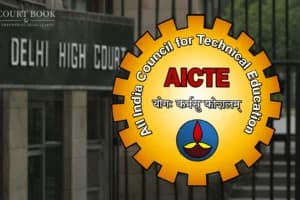The Supreme Court of India, in a significant ruling on 22 August 2025, dismissed the appeals filed by the Union Territory of Jammu & Kashmir, the National Highways Authority of India (NHAI), and the project proponent over the grant of environmental clearance (EC) for sand mining in the Shaliganga Nallah river.
The case, titled Union Territory of J&K vs. Raja Muzaffar Bhat & Ors., revolved around the legality of mining activities approved without proper environmental studies, especially replenishment studies in the District Survey Report (DSR).
Background of the Case
The project proponent was awarded mining blocks in Shaliganga Nallah for construction of the Srinagar Ring Road project. Initially, in January 2022, the J&K Expert Appraisal Committee (EAC) rejected the proposals due to depleted river stretches from excessive illegal mining and absence of replenishment data in the DSR.
Read also: Supreme Court Allows Victim’s Heir to Continue Appeal in 1992 Haridwar Murder Case
However, after receiving a “fit for mining” certificate from the Department of Geology and Mining, the project proponent reapplied. By March 2022, the EAC recommended clearance despite noting that the DSR was incomplete. Subsequently, the State Environment Impact Assessment Authority (SEIAA) granted clearance on 19 April 2022, restricting mining depth to one meter because of missing replenishment data.
This decision was challenged by environmental activist Raja Muzaffar Bhat before the National Green Tribunal (NGT), which set aside the EC for violating environmental norms.
The Supreme Court upheld the NGT’s order, stressing that a District Survey Report is valid only if backed by a proper replenishment study. The Court held that granting clearance without such scientific data amounted to a regulatory failure.
Read also: Supreme Court Clarifies Execution of Consumer Forum Orders in Palm Groves Case
Quoting the judgment:
“Non-preparation of DSR as per guidelines and absence of replenishment study is a fact which has not been disputed. There is no provision that allows bypassing replenishment studies even if mining is restricted to one meter depth.”
The Court also criticized the EAC and SEIAA for compromising regulatory integrity by approving mining on the basis of an incomplete DSR.
The Supreme Court noted that while allegations of violation of mining rules were not proven, the project proponent had indeed used heavy machinery like JCBs and excavators, which was against the clearance conditions that required manual or semi-mechanized methods. The J&K Pollution Control Board was directed to take appropriate action.
Read also: Bombay High Court Dismisses PIL Challenging MIDC’s Land Allotments to Educational Institutions
Since the road project is now completed, the Court found no need for further environmental clearance. All appeals by J&K, NHAI, and the project proponent were dismissed, with parties directed to bear their own costs.
Case Title: Union Territory of Jammu & Kashmir (Previously State of J&K) & Anr. vs. Raja Muzaffar Bhat & Ors.
Appeals: Civil Appeal No. 8055 of 2022, Civil Appeal No. 68 of 2023, and Civil Appeal (Diary No. 1007 of 2025)
Judgment Date: 22 August 2025














